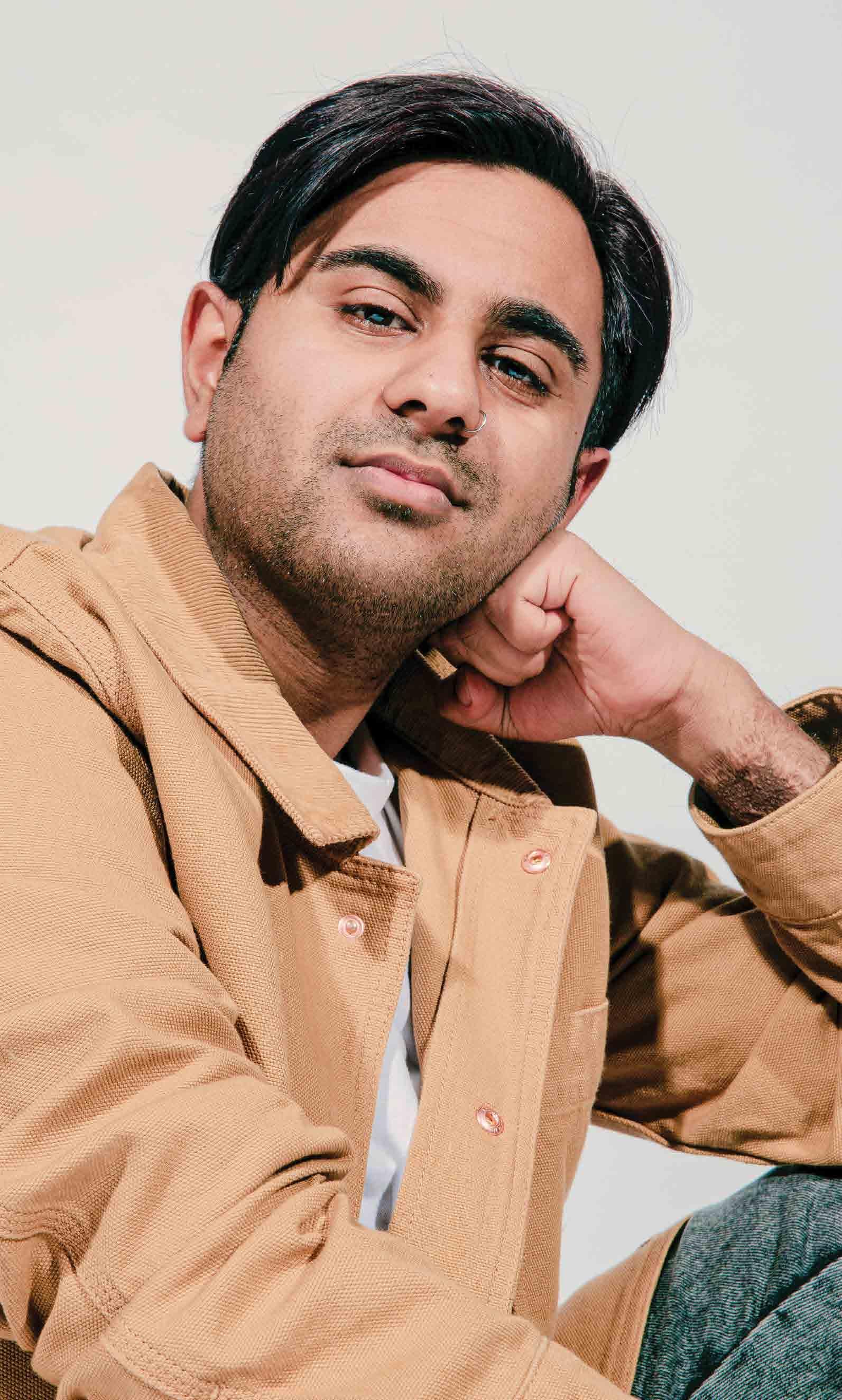
4 minute read
LET’S TALK ABOUT INTERSEX
In his final year at Westminster, alumnus Anick Soni (Law LLB, 2017) came out as intersex. In the short time since then, he has made a significant contribution to the LGBTQIA+ community through his unwavering determination to educate society about what it means to be intersex and why we need to have more conversations about it.
“I didn’t realise sharing my story could create such radical change,” says Anick. “Telling me ten years ago that all this was going to happen wouldn’t have made any sense to me. It was such a big secret for such a long time.”
Advertisement
The ‘secret’ Anick is referring to, is that he was born with intersex characteristics. Now, at just 25, his dedication to combatting ignorance around what this means has won him a Gay Times Honour award, an appointment as Fellow of the Royal Society of Arts, and the opportunity to write the first ever briefing paper on intersex for parliament, which was discussed in the House of Lords.
So, what does ‘intersex’ mean?
“Intersex is an umbrella term that refers to when someone is born with biological variations in their sex characteristics,” Anick explains. “So, that’s things such as our hormones, our chromosome pattern; the way our body looks on the inside and the outside. When someone is born with an intersex trait or variation, their body is different in some way to what you’d expect in typical examples of what we see as ‘male’ or ‘female’.
“For example, some people may have XX chromosomes, but their body looks more male; or they may have more androgen, so that their chromosome pattern doesn’t match how they look on the outside. For others, like in my situation, their body doesn’t respond to androgens in the same way. So no matter how much testosterone I produce, my body doesn’t look like other male bodies, without intervention.”
If this is news to you, you’re not alone. Intersex characteristics are rarely talked about and almost never taught in schools. One of the reasons being that the terminology surrounding intersex is so ambiguous.
“Intersex is such a complex area because it’s a language game,” says Anick. “There’s so much medicalisation involved, and it’s so broad. Some of the characteristics that count as being ‘intersex’, actually occur in one in every three hundred boys.
“But the problem is, we don’t know how many people are born with intersex characteristics, or how many ‘corrective’ surgeries are taking place, because the definitions just aren’t there. Without the information, parents are more likely to opt their child in for surgery, which is not a quick fix and can have serious repercussions throughout childhood and later life.”
To complicate things further, in 2006 the medical profession renamed intersex as ‘Disorders (or Differences) in Sex Development’ or ‘DSD’, which was met with controversy due to the emphasis on and association with medical disorders.
“I’m now working with other intersex people to establish a charity, which aims to encourage open discussions between families and medical professionals about the options available to people with intersex variations,” explains Anick. “It’s not about banning surgeries altogether, but about supporting parents so that they can make an informed decision about whether that’s right for their child.”
The complexity of these issues, along with the potential impact on human rights violations, is something which Anick was able to study during his law degree at Westminster.
“The first two years of my degree were fairly uneventful,” he says. “But thanks to the Distant Horizons scholarship, I spent my third year abroad and gained a whole new outlook. It’s where I found my niche, and decided to focus on topics that would help me look into intersex in greater detail.
“I went to Westminster to study entertainment law, but the degree is so flexible, I was able to tailor it to study the exact areas of law that would help me make a difference. In this sense, Westminster has really shaped who I am.
“I was actually in hospital for most of my final year. The majority of my lecturers had never heard of ‘intersex’ before, so there were a lot of conversations with them about what it meant, and why I would be missing so many of my classes to have surgery. But I was adamant that I would not suspend my studies, and my lecturers were very supportive. They would call me to make sure I understood everything. When I came back, I was encouraged to talk about being intersex in lecture discussions. I don’t think I would have had that amount of support elsewhere.
“It was also in my final year that I became involved with the LGBTI society, and since then I have been running regular talks and screenings of my BBC documentary, The Intersex Diaries. The Vice-Chancellor even attended the first screening of my film, so I feel like I’ve always had the full support of the University.”
The list of Anick’s achievements, proof of his determination, are endless. From speaking at the UN to organising the first intersex march at London Pride – he is a force for positive social change. But he still has a long way to go.
“Children shouldn’t grow up hating themselves, or agreeing to surgery just to fit in,” he says. “And the more people who understand what ‘intersex’ means, the easier it will be for conversations to take place, for barriers to break down, and for the body shaming of those who look different to come to an end.
“I want to see a change in the curriculum, so that when we learn about our bodies at school, we also learn about what happens when you have a body that doesn’t fit in.
“Ultimately, I want systemic change. I hope there’s a time when what I’m saying is just old news, and nothing surprising.”








